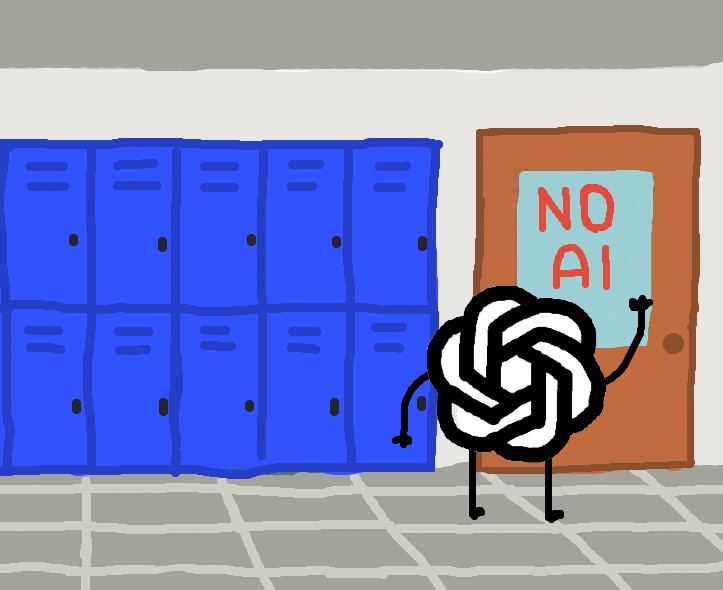Wake up: grab your phone. At school: New York Times Games. Before bed: check your phone. This cycle is a consistent part of many students’ routines. Technology has added a level of convenience in many regards; however, its addictive nature has had a destructive impact in the classroom and at home. The addictive nature of screen time stems from our reward system, and as a result, excessive screen time has become normalized in society.

In today’s world, it’s normal to spend nearly half of your day on screens, whether that be for entertainment, work, school or communication. Among the students we interviewed at McCallum High School, the daily average phone screen time was 7.2 hours. Let’s say hypothetically that if you get a healthy nine hours of sleep screen time takes up 48% of your day just on the phone. Students claim that they spend even more time on screens.
Take for instance, 12th-grader Jay Schlett.
“Here[at school] we’re on our Chromebooks like three out of four periods,” Schlett said, “and then I’m on my phone for break time, and then I get home and do more homework; so probably a solid 16 hours of the day.”
From this account that means screen time is taking up all of your day if you get eight hours of sleep. After getting asked if technology gets in the way of school work, Schlett answered with “100 percent.” To avoid distractions, Schlett said, “I delete Instagram unless I need to text someone I only have on Instagram. Yeah so just deleting [apps]. On my Chromebook, I use Google Keep because when I organize my work it makes it a lot more satisfying to complete. Technology can help me get off technology in a way.”
Schlett brings up two ways to abstain from distractions, one is going cold turkey, completely deleting distracting applications; the second is using technology to stay organized and feel a sense of accomplishment when finishing work. Although technology can distract individuals from school or work, it can also help them focus on priorities.
It has been well documented that excessive screen time can be related to mental health problems such as anxiety, depression, eating disorders, or lack of self-esteem. School teachers believe that students spend a lot of time in front of screens and phones. This greatly affects teachers because several studies have shown that the physical learning environment affects teachers’ efficacy. Excessive screen time doesn’t let you think or enjoy what you’re doing to the fullest. It can create inadequate sleep schedules, behavior problems and delays in the development of language and social skills.
To break these bad habits, teacher Richard Cowles maintains a phone-free classroom by having students put their phones in trays. He said, “The best thing I can do is to lead by example with my family and my students. … They see me put my phone in the tray.”
What draws people back to their screens daily and for hours at a time? Using screens produces a chemical called dopamine, creating a dependency on screens. In addition, both social media and video games work on a variable reward system, one that can lead to obsessive behavior. Children are especially susceptible to this obsession because their brains are craving dopamine.

Pediatrician Michael Rich writes in the a Harvard Medical School article that “children need a diverse menu of online and offline experiences, including the chance to let their minds wander.”
Children raised entirely on or offline will lack important social skills later on. The internet can be an important tool in creating an intelligent human, but when it replaces real experiences, it becomes a problem. One interesting side effect observed was that there is a lack of boredom in children raised on screens and social media. Every moment is filled with stimulation, and time without screens isn’t valued. Our experiences online are slowly replacing our daily lives. Becoming dependent on devices for everything is unhealthy.
Fear of missing out causes late use of screens which delays the production of melatonin, so we get less sleep. Less deep sleep can cause trouble in short-term memory retention, so although students may be awake in class a lack of deep sleep is certain to cause difficulty in recalling what the class covered.
In addition to this, dependence on screen time has been shown to structurally alter the frontal lobe of the brain (still developing during childhood and puberty) causing delayed decision-making and poor impulse control. Although these are all regular symptoms of young adulthood anyway, it seems they are only exacerbated by excessive screen use.
So while excessive technology use is normalized, recognizing the vicious cycle is the first step towards progress. Making use of technological resources to stay organized and communicate efficiently is important, but there is a fine line between staying in touch with people and immersing in a false reality. Continuing to set a positive example by minimizing screen usage at school and with family and friends will help foster more candid connections and increase our quality of life.




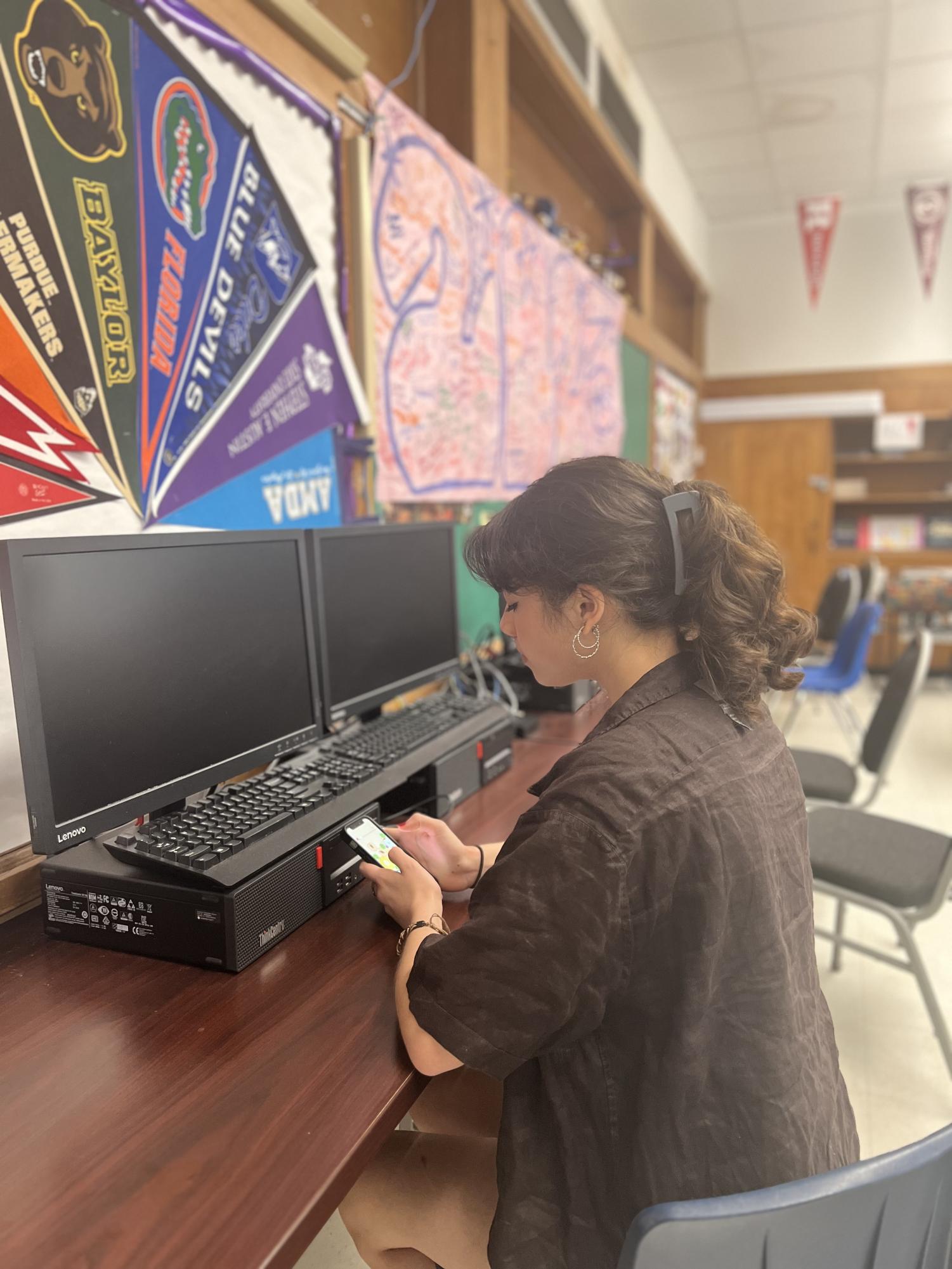

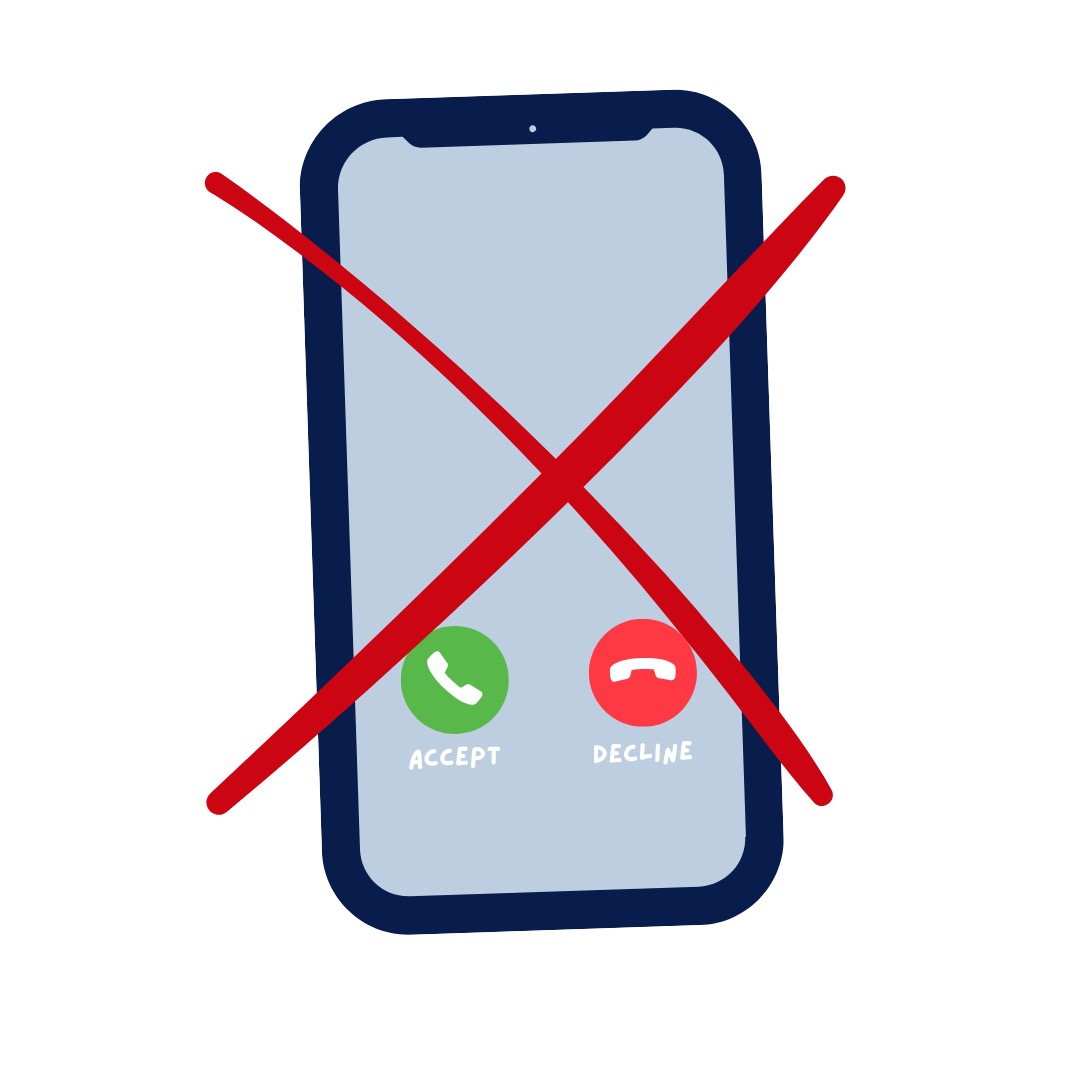
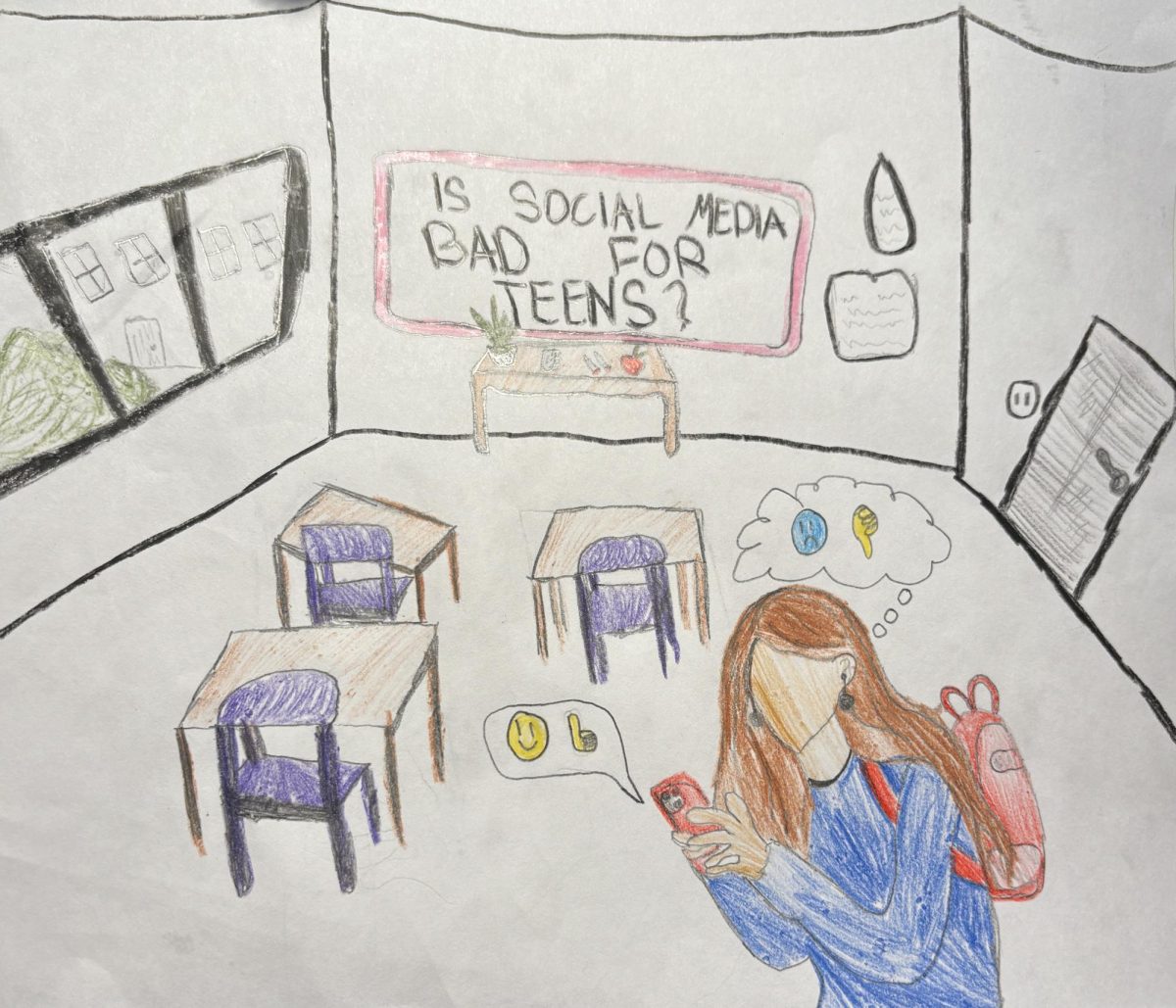
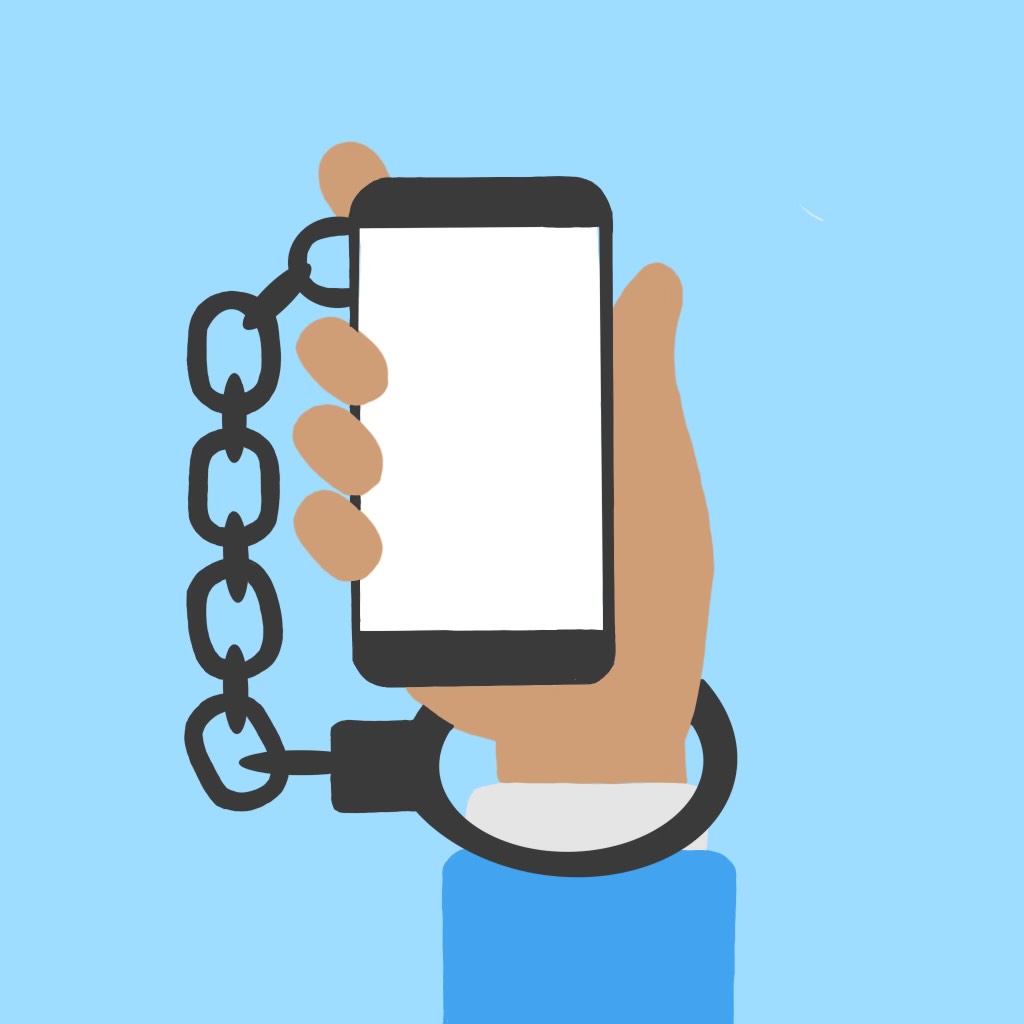

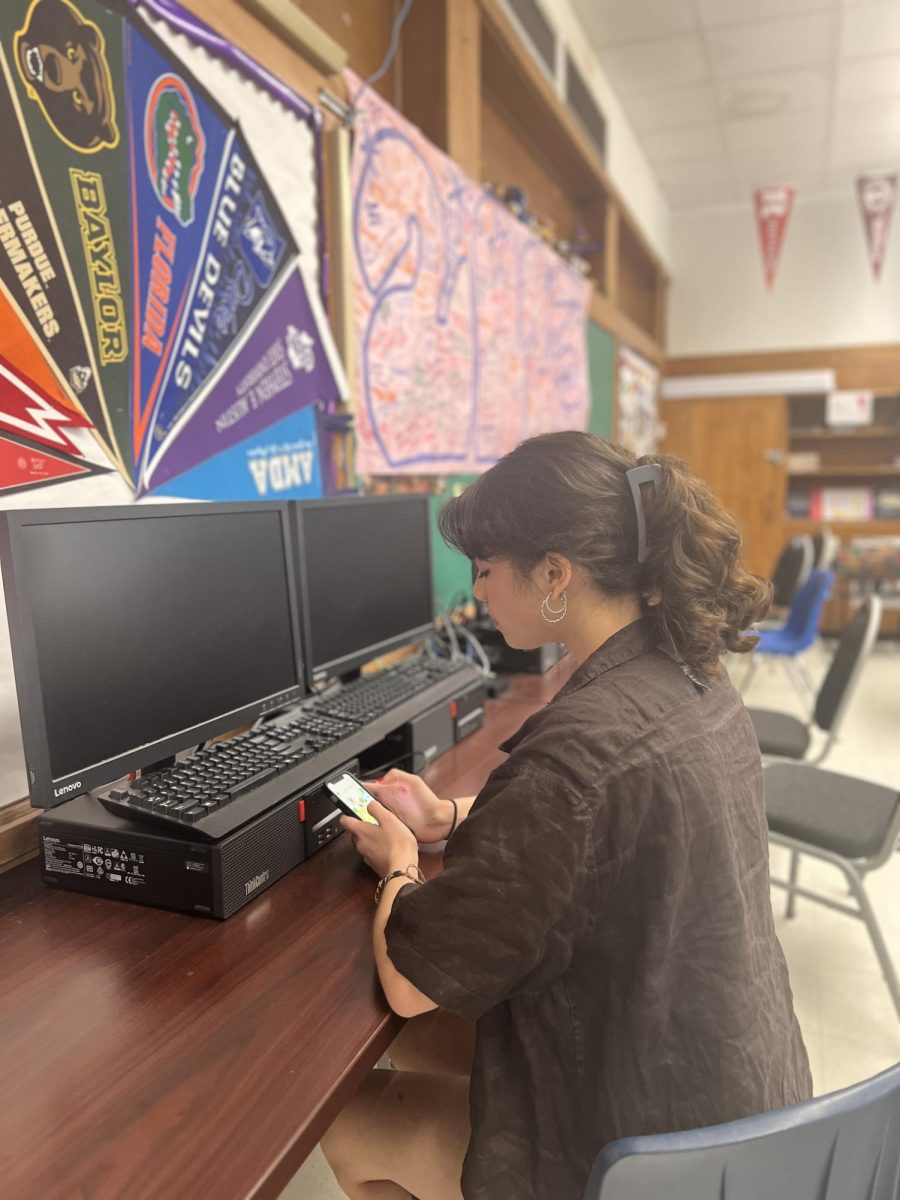


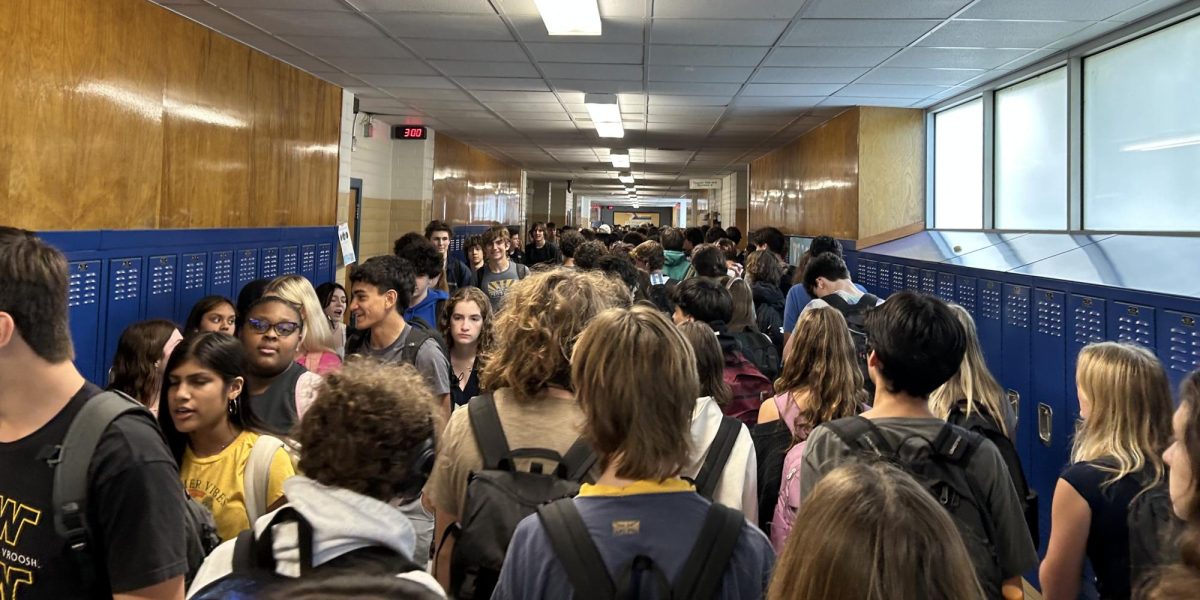
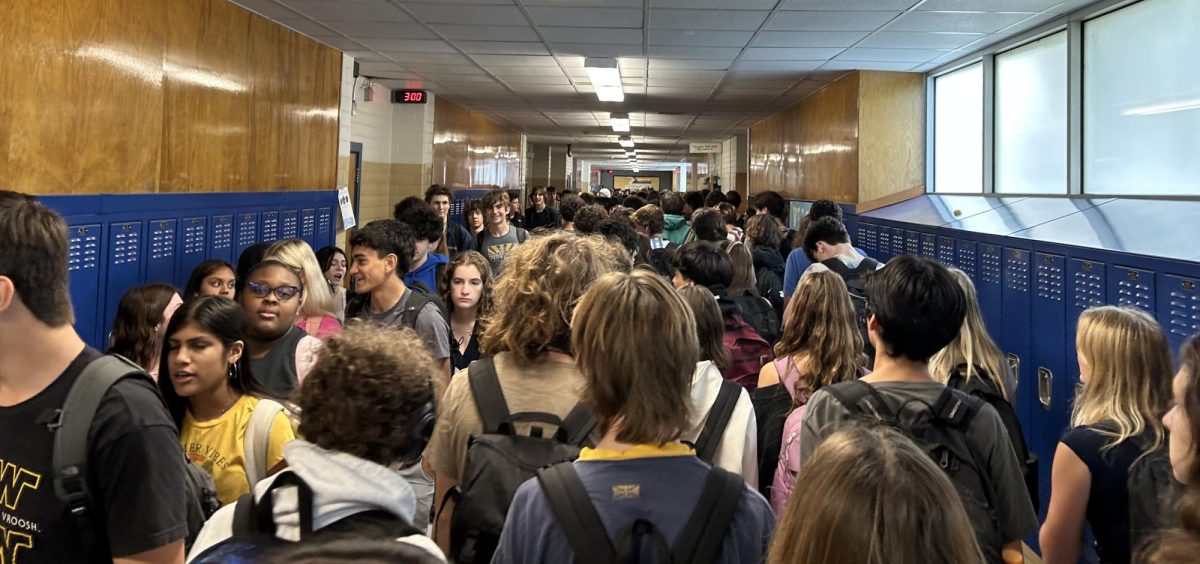
![DANCING QUEEN ONLY 15: The Mccallum quinceañera took place Saturday May 18 in the cafeteria. Students who danced at the quinceañera practiced for weeks during lunch and after school with the help of Señora A to perfect this special moment. “I signed up for fun and for the dress originally, but I actually made a lot of friends, and it helped me want to come back to practice,” said Elizabeth Peables, a freshman quinceñeara. “It’s been stressful, but it always works. We stayed very late yesterday [the day before the event], but today it feels like everything came together.”
Caption by Nellie Eschberger with reporting by Beatrix Lozach.
LA REINA DE BAILE, SOLAMENTE TIENE 15 AÑOS DE EDAD: La Quinceñera de McCallum fue el 18 de Mayo en la cafetería. Estudiantes que bailaron en la quinceañera practicaron por semanas durante el almuerzo y después de la escuela con la ayuda de la Sra. A para perfeccionar este momento especial.
“Originalmente me inscribí para divertirme, y por el vestido, pero actualmente hice muchos amigos y me ayudó a querer regresar a la práctica.” Dijo la estudiante de primer año Elizabeth Peables. “Ha sido muy estresante, pero siempre funciona.” “Nos quedamos muy tarde ayer el día antes del evento pero hoy se siente que todo está cayendo en forma.”
Leyenda por Nellie Eschberger con reportaje de Beatrix Lozach. Traducción por Maverick Palacios.](https://macshieldonline.com/wp-content/uploads/2024/06/53732328578_3ee2526f55_o_53769409497_o-1200x675.jpg)

